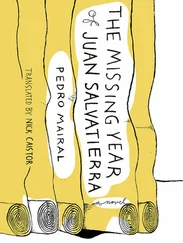How could she stand it?
Mergan rose and tiptoed to the door. She opened the latch quietly and waited a second. There was no sign of Abbas. No footsteps. No breathing. She wanted to shout the boy’s name out, but she couldn’t. She didn’t want to be able to. The cry was tied up inside her throat. She returned to her place, lay down, and fixed her eyes more intently than before upon the door. At this moment, Mergan had no other wish other than for the door to open and for Abbas to return. To return. To return swearing at her. To return and to turn the house upside down. To return and to set fire to the house. To return and to beat his mother. To give a beating. Return; just that he return!
Hajer asked, “Mama, where did you get the embers?”
“From hell!”
On the domed roofs of Zaminej, the dry cold wind shook Abbas. The wind flapped his trousers as he stood straight as a skewer, his hands thrust beneath his arms. His teeth chattered from the trembling that had taken over his body. Tears were beginning to stream from the corners of his eyes.
He sat with his back to the wind in the sheltering area between two roof domes and gathered his composure. He had to do something; even this somewhat sheltered spot did not afford enough protection from the wind for him to spend the night there. He had to find somewhere else, somewhere warm. But whose door could someone like him knock on? Who would open their house to Abbas, the son of Mergan? He had to think of someone like himself. Aunt Sanam’s house! But no. There was nowhere to sleep there. And more important, the people who came and went from Aunt Sanam’s house were all either inveterate gamblers or opium addicts. It was no place for a boy like Abbas, especially on a night like this. If he could hold out until morning, perhaps then he could go to Ali Genav’s bathhouse to warm up a bit. But Ali Genav didn’t open the baths until the dawn prayers — even if he was a stray dog, he wouldn’t last outside that long. He then thought about finding a stable and warming himself with the heat of a cow’s breath, or by lying among some sheep. But in this season of the year, and in a year like this, it was possible that someone could accuse someone like Abbas of stealing livestock at the drop of a hat. Was it worth the risk? No — that would be foolish as well. He could only think of one place to go: Hajj Salem’s old crypt of a house, behind Ali Genav’s house, adjoining Kadkhoda Norouz’s stables.
Abbas half stood and climbed across the roofs on all fours, like a black cat. He tried to crawl quietly as he went. God forbid that someone below hear him on the roof, as that would surely end with a commotion: “What are you doing on my roof at this hour of the night, you son of a bitch! Don’t you have any respect?”
Someone could raise a commotion just because of where he was. So he had to go as quietly as a cat, and he did. He paused on the roof of Ali Genav’s house and looked around. Hajj Salem’s tallow-burning lamp was still lit. Abbas knew the old man was up late most nights. And it wasn’t that late, in any case.
As Abbas watched, the door latch of Kadkhoda Norouz’s sitting room sounded, and a moment later the Kadkhoda exited, walking down the steps with a lantern in one hand and a walking stick set over his shoulder. Abbas heard Moslemeh’s voice complaining, “Where to, at this hour of the night? Again, you’ve put on your overcoat and hat and are going? Where to?”
The Kadkhoda answered right away, “I’m going to Mirza Hassan’s house, the son-in-law of Agha Malak.”
Speaking now to the yard rather than to Moslemeh, he went on. “My voice’s hoarse from bargaining with that woman … and in the end …”
The sound of the heavy outer doors of the house clanging drowned out Kadkhoda Norouz’s grumbling. Abbas turned his head from the Kadkhoda’s house and looked to the hovel of Hajj Salem, Moslemeh’s father. The dying emanation from Hajj Salem’s lamp flickered through the cracks of the door. Abbas looked directly down; at the bottom of the wall he was standing on, ash and dirt was collected in a pile. Abbas leapt onto the ash pile, half rolled, and then rose. He shook the ashes from his clothes and crouched by the wall.
The sound of Hajj Salem berating his son rose from inside the house.
“Beast! Tie up those pants of yours! Showing yourself nude is bad in the eyes of God, you oaf! Tie up that pants string! We have work tonight. Didn’t you hear the gate of your sister’s husband’s house? The Kadkhoda’s left. I have a premonition that he’s going to the house of one of his partners. Tie up those pants, you bastard! How many hundreds of lice are hiding in the lining of your pants anyway?”
The unhappy sound of Moslem rose. “D … d … d …!”
Abbas moved himself from the edge of the wall where he was to the shelter of the crypt and backed up against its wall. If the father and son were about to leave, how could he make himself their guest?
Hajj Salem’s voice kept up. “Tie it! Tie it, animal! That’s enough, enough! And tomorrow is God’s day. Let’s go. We’ll head toward a reward. Tonight, the big men are all gathering, and you have to collect a week’s worth of bread from them all. Eh, I said tie it, you beast!”
“Okay … Okay … Don’t hit me, Papa. Okay!”
Hajj Salem emerged from the crypt hunched over and covered by his tattered quilt, holding his crooked walking stick. He looked to the sky and said, “Dear God, my hopes are with you. If you’ve made me destitute, then bless others with your blessings! If you’ve tied my hands, then grant joy to the hearts of others … Come on out, you beast of God!”
Moslem exited, still holding the tie-string of his pants in one hand, saying, “It won’t, Papa! It won’t … I can’t, Papa!”
Hajj Salem, with a curse on his lips, knelt at the large bare feet of his son. He took the string from Moslem’s hands, and while he tied the pants, began to swear. “God give me compensation for how you torment me! May his hands be crippled, my little animal. He’s spent thirty springs on the earth like an ass, and still can’t tie his pants up … I swear to God! Get moving! Come on, let’s go!”
Moslem set out behind his father and bellowed, “Very … Papa! Papa! Very …”
Hajj Salem turned. “God damn your ‘Papa’! Very what?”
Moslem said, “Very … very … tight. Very tight … knot … knot …”
Hajj Salem set out again, saying, “Come on! It’ll let itself out slowly. Haircloth string doesn’t hold a knot well. Come on!”
“Yes! Okay, I’m coming. I’m coming!”
Father and son left the ruins, and Abbas, who was still stuck against the wall, had no choice but to follow them. It could have been possible for him to sneak into the old crypt and to warm himself in a nook or corner inside. But he was somehow drawn to follow them instead. In Abbas’ estimation, Hajj Salem must have smelled a treat of some kind if he had dragged Moslem out tonight.
Hajj Salem and Moslem spent their days in their destitute crypt, under the collapsed roof of a half-destroyed stable just behind Kadkhoda Norouz — and Moslemeh’s — house. They eked out a daily pittance from this and that person, with the kind of work that was preoccupying Hajj Salem right now.
No one had seen it, but it was rumored that Hajj Salem possessed a huge quantity of old books. Until quite recently, he would take a volume of the Shahnameh epic written in a large script, sit at the edge of the mosque, lean his old walking stick against the wall, and begin to read out for the villagers of Zaminej. But lately, his failing eyes were no longer of use for trying to read the Shahnameh or any other book. Because of this, his books were most likely gathering dust in the back of his hovel.
Читать дальше












